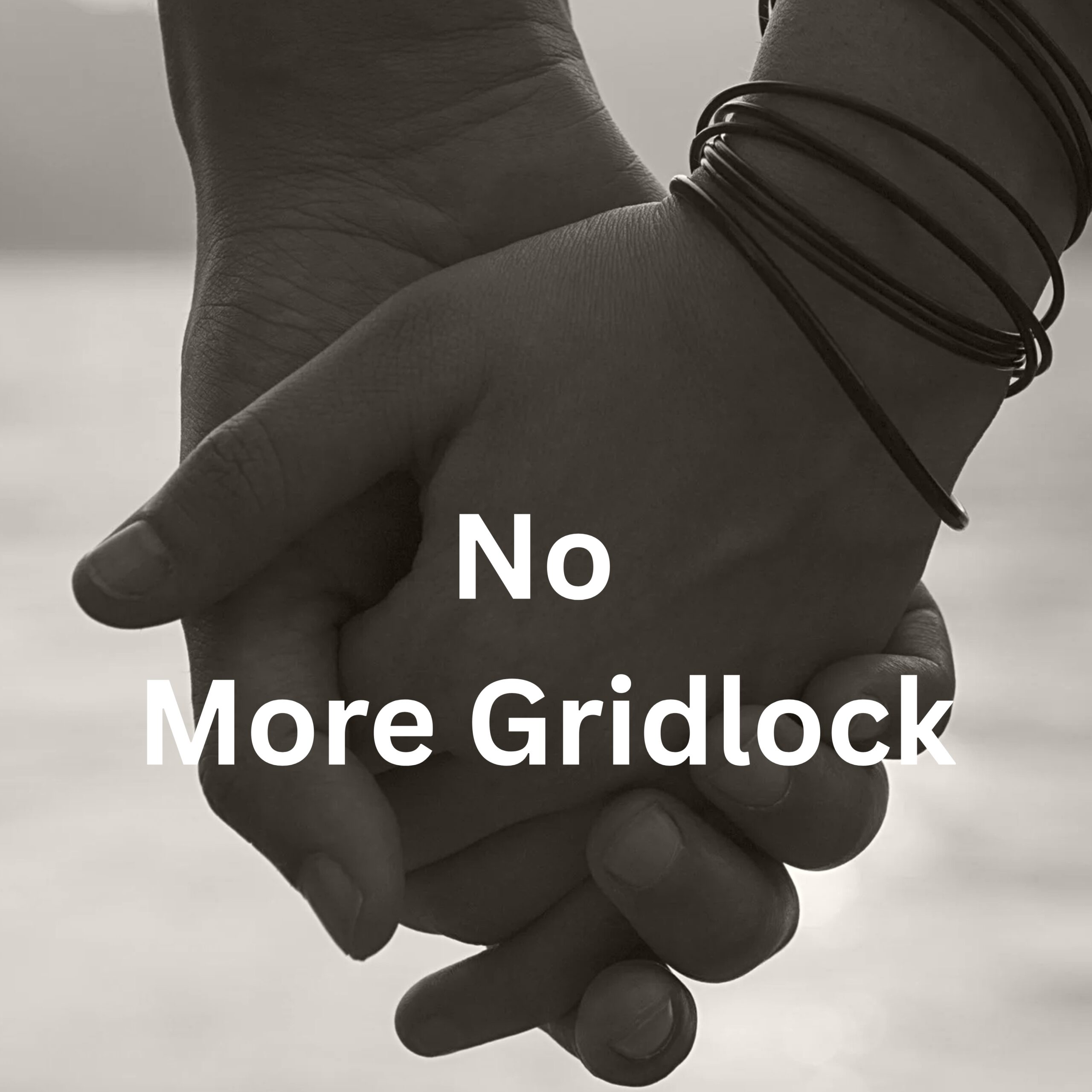Do you and your partner frequently argue about financial issues? You may be in gridlock. Discover how to overcome a common relationship challenge.
What Is Relationship Gridlock?
I have been practicing therapy since 1999, and I can tell you from my experience of sitting with thousands of couples that one of the most common problems couples present with is gridlock. What is gridlock? Dr. John Gottman defines it this way: couples have perpetual problems that are significant issues that they struggle to resolve. These unresolved issues cause mistrust, estrangement, and a persistent sense that your partner does not truly understand you.
Common Gridlock Issues in Couples (Money, Sex, Parenting & More)
Gridlock is unsolvable, but read on before you get discouraged. Gridlock means both parties come to the table with completely different views. Each party’s view remains unchanged due to the subjective reality or perspective on the issue embedded in their past experiences, values, and individuality. Some of the common gridlock issues in marriage are money, sex, parenting, and decision-making.
Spender vs. Saver Dynamics
When discussing the challenges of managing money, for example, it is essential to recognize that you can’t fundamentally change a spender into a saver or vice versa.
Differences in Sex Drive
In relationships, you may encounter dynamics where one partner has a high sex drive while the other has a low one, and this often leads to conflict.
Parenting Styles and Decision-Making
Similarly, in parenting, you might find a permissive parent contrasted with an authoritarian one. How about decision-making? There are typically two types of individuals: maximizers, who want to explore numerous options and take their time, and satisficers, who are content with examining just one or two options and making a quick decision.
Why Money Causes So Many Arguments in Relationships
If you have ever heard the phrase’ opposites attract,’ that’s very true. Couples with opposing personality traits can find that they are the genesis of many conflicts. However, it is possible to navigate these storms. Successful partners take the best of differing perspectives and compromise to find a new way to meet each other’s core needs.
The Gottman Approach to Resolving Gridlock
The work of Antol Borisovich Rapoport, a mathematical psychologist and the founder of game theory, is good evidence of how honouring needs can help create agreement in gridlock. Dr. Rapaport worked for the UN and found that countries would never change their positions toward another country until the other country first validated its position. Anatol challenged Dr. John Gottman to use some of his ideas in his couples’ love lab at the University of Washington.
Validating Before Being Understood
Dr. Gottman created the Rapoport method, a skill used in the Gottman counselling method, which involves couples validating each other —a position that is key to overcoming gridlock. Yes, the adage ‘seeking to understand before being understood’ is accurate and effective.
Real-Life Example: How One Couple Found Balance
Let’s look at an example of a gridlock issue: money can wreak havoc in a relationship. To overcome a gridlocked issue, you must validate the core needs of the spender, which, for example, may be a need for freedom or choice, as it relates to Money and, in reverse, the saver’s needs, perhaps their core needs and the reason they want to save is they desire security or safety. So, how would gridlock present in a couple’s relationship? I will provide an example using a fictitious couple named Dick and Jane. Dick and Jane will be a combination, no doubt of the essence of the number of couples I have seen over the year, but it is not a specific couple to protect confidentiality. This fictitious couple, Dick and Jane, struggled with Money. Dick was a successful surgeon who had made a lot of Money and liked to spend it as he wanted. Carol was the saver in the family and had been a stay-at-home mom to their four beautiful children. They had been married for 35 years and had built quite a beautiful life together. Their fights over Money brought them to the relationship’s breaking point. Neither was sure they could stay in the marriage any longer. As the children had launched and all were developing their own families, they were facing retirement and questioning whether they could continue this marriage any longer. In counselling, we understood their core needs and dreams in the spender-saver positions they were taking, as well as the story behind these gridlock issues. In that process, the core needs of each were explored, as well as their fears, hopes, and asks of one another. Both partners understood “why” they had never discussed each other’s behaviour before. Dick shared that he had been born into an impoverished family where there were days when he didn’t even have lunch for school. He reported that when he got into medical school, he vowed to himself that he would be filthy rich and would never let his children suffer this same poverty. He wanted to buy anything he ever wanted with no restrictions. On the other hand, Jane came from a wealthy family of origin. From the age of 11, her father would have her do chores around the house, and she would put 50% of what she earned from her chores into her bank account. For this, her father would constantly praise her for her financial development, and with this Money, she had put herself through university by the time she was 25 years old.
How to Move From Conflict to Connection
When the couple understood the core needs surrounding Money Dick’s fear of poverty and Jane’s deep motivations for connections through money, they were able to create a win-win situation. They made a bank account with “fun money” in it, and out of that account, Dick could spend to his heart’s content, enjoying the freedom and choice he had always wanted. At the same time, to meet Jane’s core needs, they agreed upon an amount of Money that would be saved every month, safe from the risk of Dick’s spending. The couple found this worked for them, and at the same time, they understood the reasoning behind each other’s needs and found a way to honour that, thus ending the relentless fights over Money and setting them up to be hopeful about their future together.
Getting Help From a Gottman Therapist
If you and your partner repeatedly fight about the same issue, you may be stuck in a gridlock. Learn how to overcome this common relationship problem with the help of a skilled Gottman therapist, such as our Can’t We Just Get Along Counselling team. They can help you work through all the deep conversations to create a mutual win-win on these complicated, stuck issues you have been facing. We can help; reach out today and take the first step toward transforming your life and relationship.
We look forward to seeing you soon.
Melody Evans, Clinical psychologist
Melody Evans is a clinical psychologist and founder of Can’t We Just Get Along Counselling. With over 20 years of experience helping individuals, couples, and families, she uses solution-focused therapy to support clients through life’s challenges. Passionate about relationships and personal growth, Melody is committed to helping people create lasting positive change.


